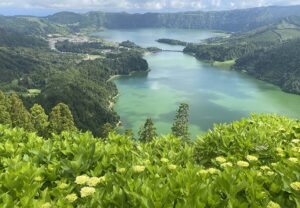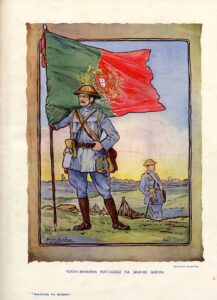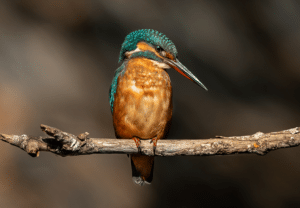By MARGARET BROWN features@algarveresident.com
Margaret Brown is one of the Algarve Resident’s longest standing contributors and has lived in the Algarve for more than 20 years.
Having lived beyond the biblical three score years and ten (and then some), recently I had the salutary job of proving that I was still alive.
Failure to do so would result in the immediate removal of my pension rights until I could prove otherwise. It always comes as a bit of a shock and this visit to the British Consul in Portimão made me doubt my own existence.
Instructions from the Department of Social Security UK state that either Passport or Driving Licence or Residência may be used for proof of identity, but when I offered my Resident’s Permit at the Consulate, it was viewed with disdain: “May I see your Passport?”
As usual, it was safely stashed away at home and there followed a long consultation with an invisible authority behind the glass defences. After a long wait, I was asked for my driving licence, based on the assumption that it is an extension of one’s person and everybody has one.
With further humming and haa-ing by the stern faced clerk, I began to feel like an illegal immigrant. Eventually I was declared alive and my small pension secured for another year.
While we waited for the Consul to be moved, in the manner of a Quaker meeting awaiting the word of God, a British family was attempting to put back some sort of order into their lives having been robbed of their personal possessions and key to the hire car.
Despite many happy holidays in the Algarve, they assured us that
they would not be coming back and would no doubt speak of their distress once home – something Turismo de Portugal can do without.
Behind the sparsely populated beaches and uncrowded pavements of Lagos, country life carries on in the inimitably laid-back manner we have learned to love.
Hay paddocks cut in May lie week on week under the bleaching sun and occasional downpour. A contractor might arrive mid-June with his Girassol (or Wuffler) to windrow the tasteless product, which would then remain exposed to the elements until a bailer turned up
at the end of the month – or later.
By this time, much of the leaf will have been lost along with its food value, from a crop 50% of which is perennial weed. The digestive systems of cattle, sheep and goats are able to convert coarse fibre into energy, but equines are not similarly equipped and by the end of the winter months, unless given supplementary feed, the bones of local horses become very prominent.
Farming tips
If, as was announced recently, the Portuguese government intends to encourage rather than ignore agricultural enterprise, perhaps guidance might be offered down south with regard to
making sweet and nourishing hay.
Handicapped by poor land and periodic drought, tilling the local soil does not give high returns. When we first arrived
in Portugal, our neighbour, who was a small time farmer, talked us through the cultivations and cropping needed to feed two horses we were shipping across from England in 1987.
Disc harrow rather than plough, otherwise the harvest would consist of stones; seed to be broadcast in triplicate having first cast the Runes during a full moon – one for the ants, one for the birds and one to germinate with help from daily irrigation, necessary because we had arrived on the tail of a four year drought.
Nothing much has changed since then judging by the derelict
agricultural land around. We have watched it being mown annually although any grass remaining is steadily giving way to coarse perennial weeds, along with deadly ragwort.
At first we struggled to grow vegetables only for them to be cut down by mole rats. Then followed the overnight death of a small flowering tree and now my gardening is in pots and tubs rather than the inhospitable soil.
There is a plus to this slow reversion and, with the encroachment of indigenous plants and shrubs, some of the absent fauna is also returning. Watering my pocket-sized garden one evening, I trod on the tail of a large and shiny green snake.
As long as a broom handle and twice as thick, it made a rapid exit over the edge of the terrace into a dense lemon scented bush alongside our borehole house.
This welcome presence suggests an increase in small rodents and other tasty morsels that are a major part of a snake’s diet. However, I doubt the longevity of an inch long toad found this morning struggling to escape from a flower pot.
Watching it escape into the matt of coarse grass alongside, I know that only a miracle will save it from a host of hungry predators having just seen a kestrel take some small creature on the rough ground outside our kitchen window.
Farewell
On the human side, a large party of friends and members of St. Vincent’s Anglican Church has just bid farewell to a couple of escapees from the Algarve. Molly Evans and Pam Gibbons, who have supported the Church in Luz since 1988, for reasons of health and advancing years are returning to Britain and their new home in Exmouth.
Pam was a founder member of the Choir and Molly a constant presence in both the Anglican and Catholic congregations, the latter under the guidance of Padre Zé Manuel.
Their departure signals the end of an era and they will be remembered with respect and affection.
























